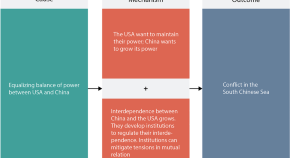Collection
Marine Conflicts and pathways to sustainability in an era of blue growth and climate change
- Submission status
- Closed
Worldwide, marine conflicts are growing in frequency and intensity due to increasing global demands for resources (Blue Growth) and climate change. The exacerbation of existing conflicts and generation of new ones risks impeding efforts to achieve marine related Sustainable Development Goals. Conflicts might also hinder the sustainable use and management of these environments through perpetuation of social and environmental injustices, marginalization of vulnerable groups, non-recognition of distinctive eco-cultural marine relationships, pressure on the marine environment through multiple uses, disruption to climate change mitigation projects, among others. In response, in this special issue we examine the complexity of marine conflicts and their relation to sustainability and social justice. This focus includes examination of how conflict is variously conceptualized; what the origins and driving forces of conflicts are; how conflict can obstruct (or restore/invigorate) prospects for sustainability and social justice and how different actors relate to these terms; what methodological approaches can enable a more informed understanding of and productive engagement with conflict; how research on conflict can contribute to better marine conflict management practices and institutions; and how alternative values, ways of knowing and visions are articulated by marginalized groups, activists and civil society vis-à-vis dominant norms and practices.
Editors
-
Maaike Knol-Kauffman
Researcher at The University of Tromsø – the Arctic University of Norway. Her work focuses on marine governance and aims at understanding the changing relations between science, politics and society in transforming natural, social and institutional environments. Besides OCEANS PACT, with its focus on knowledge production for a better understanding of marine conflict and marine conflict transformation, several of her recent projects are collaborations across the natural and social sciences with an explicit focus on the Arctic region. She is also an associate editor in Maritime Studies; e-mail: maaike.knol@uit.no
-
Fred Saunders
Associate Professor in Environmental Science at Södertörn University, Sweden. He studies the relationships between politics, power and resource use across a wide range of global North and South settings. His recent research projects have focused on understanding ways to enhance sustainability and social justice in marine settings. Current research projects include: CRA Ocean sustainability research project, OCEANS PACT and Taking Social Sustainability to the Sea (Baltic Sea Region); e-mail: fred.saunders@sh.se
-
Samiya Selim
Associate Professor and the Director of Center for Sustainable Development at the University of Liberal Arts Bangladesh (ULAB). She is a marine social scientist and specializes in interdisciplinary areas of social-ecological systems – sustainability science, climate change adaptation and resilience, and the science-policy interface. At present, she is doing a part time Postdoc at the ZMT Leibniz Centre for Tropical Marine Research, Germany on resolving marine conflicts. Her current work focuses on ensuring equity in blue growth, resilience in small scale fisheries, and ecosystem-based adaptation in coastal regions of Bangladesh.
-
Ralph Tafon
Researcher in Environmental Science at Södertörn University, Sweden. He researches the role of power, discourse, politics, and justice in the development, challenge, transformation and/or sedimentation of dominant sustainability discourses, policies and practices in the global North and South. His recent studies investigate ways to advance social and ecological justice (including recognition, representation, capability and equity) in the ocean realm. His current research projects include OCEANS PACT and Taking Social Sustainability to the Sea; e-mail: ralph.tafon@sh.se
-
Josselin Guyot-Tephany
Environmental geographer currently working as a postdoc researcher at Nantes Université (France). He studies the relationships between environmental changes, policies and narratives. He focused for a decade on islands, especially the Galapagos Archipelago (Ecuador), and how these territories contributed to shape natural sciences and conservation policies. Recently, he started working on multi-use at sea to explore the role of maritime spaces in the energy transition; e-mail: josselin.guyot-tephany@univ-nantes.fr
Articles (11 in this collection)
-
-
Strategies for addressing conflicts arising from blue growth initiatives: insights from three case studies in South Africa
Authors
- Merle Sowman
- Philile Mbatha
- Johanna von Holdt
- Content type: Research
- Open Access
- Published: 14 November 2023
- Article: 51

-
Analysis across case-based global sustainability projects: an emerging challenge for ocean conflict research in the Anthropocene
Authors (first, second and last of 12)
- Marion Glaser
- Samiya Ahmed Selim
- Bernadette Snow
- Content type: Research
- Open Access
- Published: 07 November 2023
- Article: 48
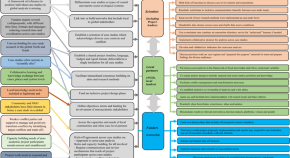
-
Sustainability conflicts in the blue economy: planning for offshore aquaculture and offshore wind energy development in Norway
Authors (first, second and last of 4)
- Maaike Knol-Kauffman
- Kåre Nolde Nielsen
- Peter Arbo
- Content type: Research
- Open Access
- Published: 11 October 2023
- Article: 47
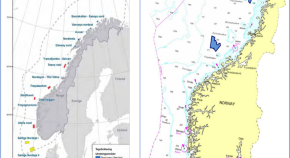
-
Multispecies blue justice and energy transition conflict: examining challenges and possibilities for synergy between low-carbon energy and justice for humans and nonhuman nature
Authors (first, second and last of 4)
- Ralph Tafon
- Fred Saunders
- Michael Gilek
- Content type: Research
- Open Access
- Published: 06 October 2023
- Article: 45

-
Ocean conflicts for whom and why? Participatory conflict assessment in the southeast coast of Brazil
Authors (first, second and last of 14)
- I. M. Martins
- D. S. Prado
- Ronaldo A. Christofoletti
- Content type: Research
- Published: 29 August 2023
- Article: 40
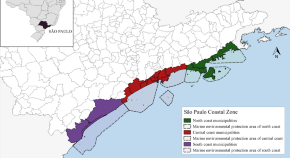
-
History matters: societal acceptance of deep-sea mining and incipient conflicts in Papua New Guinea
Authors (first, second and last of 11)
- E.I. van Putten
- S. Aswani
- R. Vave
- Content type: Research
- Open Access
- Published: 03 July 2023
- Article: 32
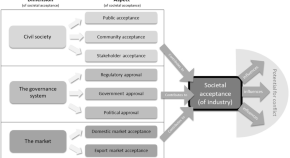
-
A review of how we study coastal and marine conflicts: is social science taking a broad enough view?
Authors
- Lol Iana Dahlet
- Samiya A. Selim
- Ingrid van Putten
- Content type: Research
- Open Access
- Published: 21 June 2023
- Article: 29
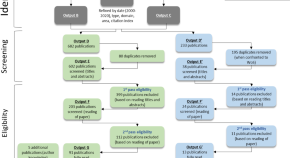
-
Reconceptualizing coastal fisheries conflicts: a Swedish case study
Authors
- Milena Arias Schreiber
- Maris B. Gillette
- Content type: Research
- Open Access
- Published: 15 June 2023
- Article: 27
-
Correction to: Understanding and analysing the complex causality of conflicts over marine environments through process tracing
Authors (first, second and last of 5)
- Wiebren Johannes Boonstra
- Lol Dahlet
- E. I. van Putten
- Content type: Correction
- Open Access
- Published: 24 May 2023
- Article: 25
-
Understanding and analysing the complex causality of conflicts over marine environments through process tracing
Authors (first, second and last of 5)
- Wiebren Johannes Boonstra
- Lol Dahlet
- E. I. van Putten
- Content type: Review
- Open Access
- Published: 01 May 2023
- Article: 19
